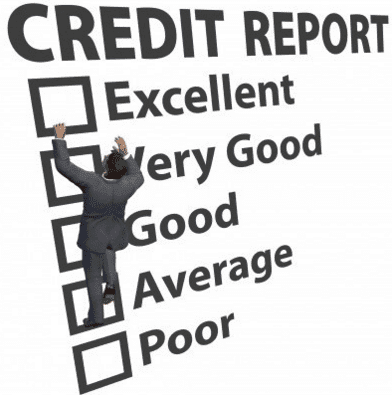Understanding Your Credit Score to Help Secure the Best Rate/Loan Possible
Credit scoring basics
A credit score is a numerical ranking that identifies how much risk you pose to a lender. Credit scores are determined exclusively using information found on your credit report. Factors used to determine your credit score include payment history, outstanding debts, credit history length, and other, less weighted considerations. Borrowers and lenders alike place a great deal of importance upon credit scores because they have a large impact on the interest rate of your loan, influence which loan program best suits you, and illustrate your reputation as a borrower.
Credit scores can differ between reporting agencies and lenders. Reporting bureaus often use slightly different mathematical models to determine your score, and in some cases the agencies may have different information about your credit. Lenders frequently choose the scoring model that best fits their needs, and the most widely used type of credit score among lenders is the FICO score. FICO scores range from 300 to 850. The higher your score, the better. FICO scores are considered an industry benchmark.
Get a free copy of your credit report every 12 months from annualcreditreport.com. To contact the reporting bureaus regarding your score see the numbers below:
| Equifax 1-800-685-1111 | TransUnion 1-800-888-4213 | Experian 1-888-397-3742 |
Understanding your credit report
The purpose of a credit report is to establish your creditworthiness. Your credit “reputation” and repayment history are detailed in this document to help a lender approve your loan. Credit reports contain four sections:
- Identifying information. Here you can find your Social Security number, name, address, telephone number, and other basic information.
- Credit history. This section contains all accounts for which you’ve been granted credit, the creditor of those accounts, payment amounts and other account activity details.
- Public records. If you’ve ever filed for bankruptcy, have had a tax lien, or experienced other financial hurdles, they will be reported here.
- Inquiries. Any time you or a creditor access your report, it is recorded and detailed in this section.
How to improve your credit score
Your credit score is only one part of a larger lending picture. Right Choice Mortgage will evaluate many factors when determining your loan eligibility. Income stability, employment history, property value, and many other aspects of your financial situation are considered, in addition to your credit. If your credit needs work, it does not necessarily mean that you won’t qualify for a loan. With our extensive lender network, we find solutions to many credit issues. There is also nothing you can do to your credit from which you can’t recover.
Here are four basic ways you can improve your credit:
- Evaluate your credit report and dispute any inaccuracies. If you find mistakes or accounts that don’t belong to you, you should dispute those items. Credit bureaus must respond to disputes within 30-45 days by law.
- Make payments on time and stay up-to-date on your accounts. Older credit delinquencies have a smaller impact on your score than recent late payments, therefore establishing a pattern of good payment practice can boost your score.
- Maintain low balances on your credit lines and decrease debt. Borrowers who owe smaller amounts on credit accounts are viewed as having lower repayment risk. Meanwhile, existing debt accounts for 30% of your FICO score, therefore consolidating and decreasing your recurring debts will improve your score.
- Consult with a mortgage lending professional like Jackie with Right Choice Mortgage. She will take into consideration your entire financial picture and will help you create and execute a targeted plan for improving your credit in order to get you the best home financing possible.

